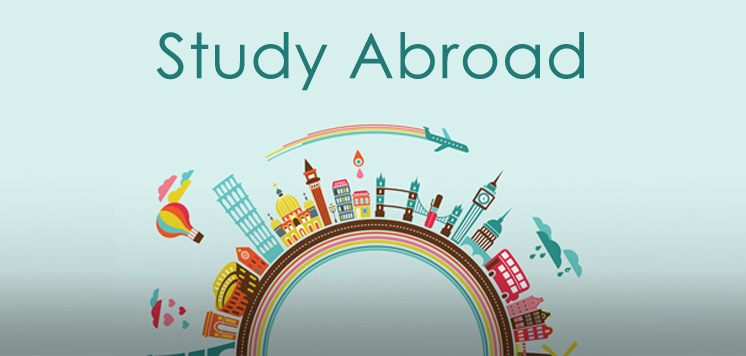Studying abroad is one of the most exciting and rewarding experiences that can shape your personal and professional life. It provides a unique opportunity to immerse yourself in a new culture, gain a global perspective, and access world-class education. However, with the multitude of programs available around the world, choosing the right one can be a daunting task. To ensure that your study abroad experience aligns with your academic, personal, and career goals, it’s crucial to take a strategic approach. This article will explore how to select the best study abroad program for your needs, offering practical tips and insights to guide you through the decision-making process.
Key Takeaways
- Define your academic, career, and personal goals to guide your study abroad selection.
- Research the program types, such as semester abroad, internships, or language immersion, to find the best fit.
- Consider the location’s academic reputation, cultural fit, safety, and cost of living.
- Ensure the program offers adequate support before, during, and after your study abroad experience.
- Take advantage of scholarships, financial aid, and budgeting to make studying abroad more affordable.
Why Choose a Study Abroad Program?

Before delving into how to choose the right program, it’s important to understand the key benefits that come with studying abroad:
- Cultural Exposure: Experience different cultures, languages, and traditions, enhancing your worldview and enriching your personal development.
- Academic Growth: Study in world-renowned institutions and gain knowledge that could set you apart in your field.
- Career Advancement: International experience can make your resume stand out, showcasing adaptability, independence, and global awareness.
- Language Acquisition: Immersing yourself in a country where the native language differs from your own offers the opportunity to learn a new language or improve language skills.
- Networking Opportunities: Build a global network of friends, professors, and professionals that could help further your career in the future.
Now that you understand the significance of studying abroad, let’s explore how to choose the program that aligns with your academic and career goals.
Steps to Choose the Right Study Abroad Program
Choosing the right study abroad program requires thoughtful planning, research, and self-assessment. Here are the key factors to consider:
1. Define Your Goals and Objectives
Before you start browsing through different study abroad options, take some time to define your goals. Understanding what you hope to achieve will guide your decision-making process. Ask yourself the following questions:
- What are my academic goals?: Do you want to take specific courses that will enhance your major, or are you looking for a more general international experience?
- What are my career aspirations?: Will studying abroad provide you with opportunities to gain relevant work experience or build a network in your desired industry?
- What are my personal development goals?: Are you looking to grow personally by learning a new language, experiencing new cultures, or building independence?
Once you have a clear idea of your objectives, you’ll be better equipped to choose a program that supports your academic, career, and personal goals.
2. Research Available Programs
Now that you have a sense of your goals, begin researching study abroad programs that fit those objectives. There are various types of study abroad programs, including:
- Semester/Year Abroad Programs: These programs typically last for one semester or a full academic year, and they often allow you to immerse yourself fully in the culture and educational system of the host country.
- Short-Term Programs: For students who want to experience another culture but are limited by time, short-term programs (typically lasting between a few weeks and two months) can be an excellent option. These programs may be focused on specific academic subjects, internships, or service-learning experiences.
- Internship Programs: If you’re looking to gain work experience, consider choosing a program that includes internships. These programs offer the chance to work for an international company while studying, giving you a competitive edge in the job market.
- Language Immersion Programs: If learning a new language is one of your main goals, look for programs that emphasize language immersion. These programs place you in an environment where the primary language is spoken, facilitating rapid language acquisition.
- Exchange Programs: These programs typically involve a partnership between your home university and a foreign institution. You will study at a host university while paying tuition fees to your home school.
When researching, check for university or government-sponsored programs, as well as third-party providers that offer structured programs. Look for reviews, testimonials, and other feedback from students who have participated in the programs you’re interested in to get an idea of the program’s quality and impact.
3. Consider the Location
The location of your study abroad program is critical. Not only will it influence your experience, but it can also play a role in how much you gain from the program in terms of academic and personal development. Consider the following when choosing a location:
- Academic Reputation: Does the host country or university offer the courses and research opportunities that align with your academic goals? Is the university highly ranked in your field of study?
- Cultural Fit: Will the country and culture align with your interests and preferences? Consider factors such as language, food, lifestyle, and the overall social atmosphere.
- Geographic Preference: Do you have a specific region or country in mind? Is it an area where you can learn a new language or build connections for your future career?
- Cost of Living: The cost of living can vary significantly from one country to another. Take into account not only tuition fees but also accommodation, transportation, food, and other living expenses.
- Safety: Research the safety of the location. Are there travel advisories? What is the political climate? Make sure the destination is safe for international students.
4. Evaluate the Program’s Support System

A good study abroad program should offer robust support systems for students, including:
- Pre-departure Orientation: The program should offer guidance before you leave, including visa assistance, travel tips, cultural preparation, and health and safety information.
- On-site Support: It’s important to know that there will be someone available to help you once you arrive. Look for programs that offer orientation upon arrival, local advisors, and a support network in case of emergencies.
- Academic Support: Ensure that the host institution offers the academic services you need, such as tutoring, library access, and study resources.
- Internships and Career Services: If career development is a priority for you, choose a program that offers internship placements, job fairs, or career workshops.
- Cultural Activities: Programs that offer cultural excursions, language classes, and social events will help you immerse yourself in the local culture.
5. Understand the Costs and Financial Aid Options
Studying abroad can be expensive, but there are numerous options to make it more affordable:
- Scholarships and Grants: Many universities, organizations, and governments offer scholarships for students studying abroad. Research and apply for as many scholarships as you can to reduce costs.
- Financial Aid: Check with your university to see if you can use your financial aid package for study abroad programs. Some institutions allow you to apply your federal student aid or private loans toward study abroad expenses.
- Budgeting: Create a detailed budget that includes tuition, accommodation, travel, meals, and personal expenses. Understanding the cost of living in the host country will help you plan ahead.
6. Assess the Program’s Flexibility and Compatibility with Your Degree Plan
Make sure the program you choose fits into your academic timeline. Will you be able to earn the necessary credits toward your degree while abroad? Will you be able to graduate on time? Some programs allow you to transfer credits back to your home institution easily, while others may have more complex procedures. Also, check if the program offers flexibility in terms of courses or if there are any prerequisites that you must meet before applying.
7. Seek Advice from Others
Once you’ve narrowed down your options, talk to students who have studied abroad, academic advisors, and study abroad program coordinators. They can provide you with valuable insights, advice, and recommendations. Often, their experiences can help you make more informed decisions.
Also Read: Why Should You Choose to Study Abroad at UF?
Conclusion
Choosing the right study abroad program is a significant decision that will impact your education, career, and personal growth. By defining your goals, researching programs, considering the location, and evaluating the costs and support systems, you can make an informed decision that aligns with your aspirations. Remember, studying abroad is an investment in your future—it’s an opportunity to expand your worldview, gain valuable skills, and build lifelong connections. Take your time, plan carefully, and get excited for the adventure ahead!
FAQs
How do I find the best study abroad program?
Research is key. Consider your academic and personal goals, evaluate different programs, and seek advice from advisors or peers who have studied abroad.
What are the costs of studying abroad?
Costs can vary depending on the location, program, and duration. Be sure to account for tuition, accommodation, meals, travel, and personal expenses.
Can I work while studying abroad?
Many countries allow students to work part-time while studying, but there may be restrictions based on the student visa and the country’s regulations.
How do I choose a location for studying abroad?
Consider your academic goals, career aspirations, cultural interests, safety, and budget when choosing a location. Make sure the destination aligns with your objectives.
What types of support are available for study abroad students?
Look for programs that offer pre-departure orientation, on-site support, academic advising, and career services to ensure a smooth transition and experience.
Can I study abroad if I don’t speak the local language?
Yes! Many study abroad programs offer courses in English, even in non-English-speaking countries. Language immersion programs can also be a great way to learn the language while you study.
Are there scholarships for study abroad programs?
Yes, there are various scholarships and financial aid options available to help fund your study abroad experience. Research these opportunities early and apply for as many as you can.




